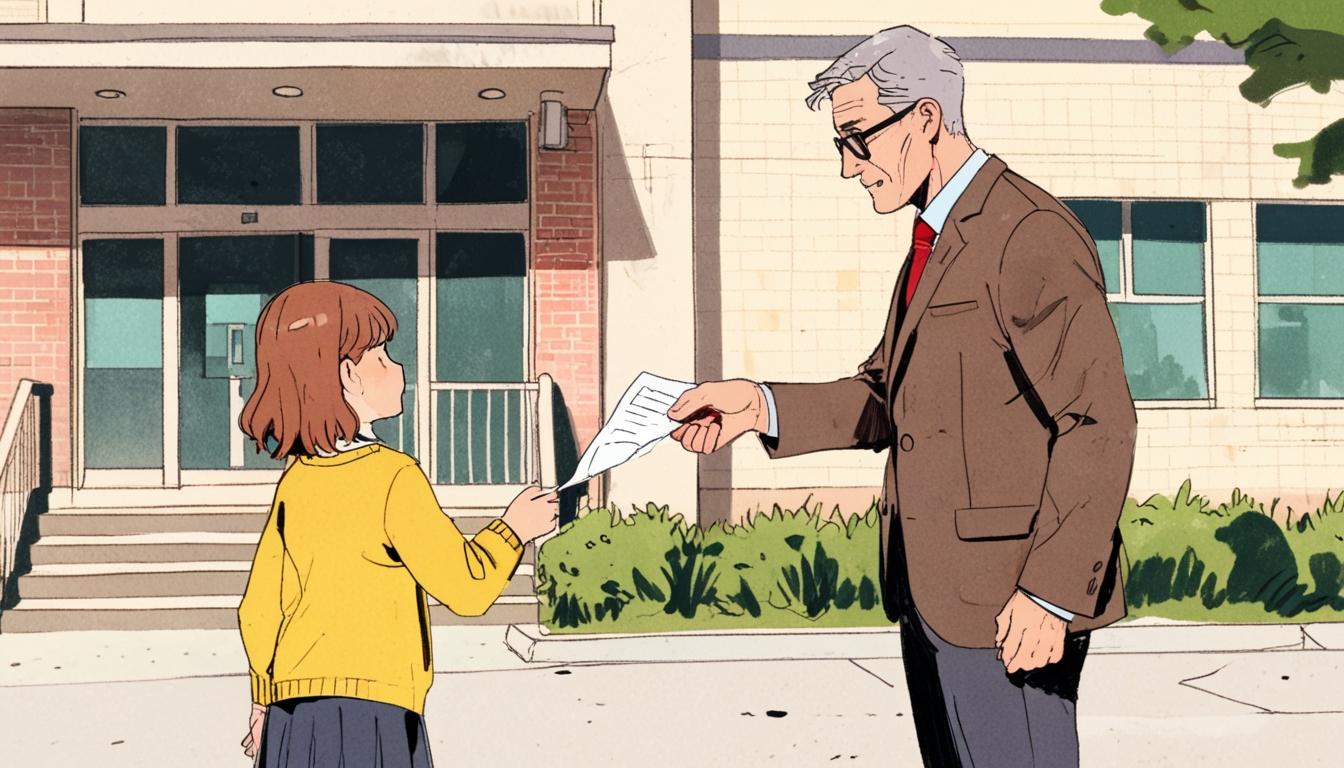The principal of Marist Sion College in Warragul has sparked parental backlash after distributing a letter that appeared to politicise school funding ahead of the federal election, seemingly favouring the Liberal National Coalition and raising concerns about impartiality in education.
Parents of students at Marist Sion College in Warragul, a town southeast of Melbourne situated in the marginal Liberal electorate of Monash, are expressing justified outrage after the school principal distributed a letter that appeared to overtly influence voting decisions ahead of Saturday’s important federal election. The letter, issued by principal Lisa Harkin, brazenly touted federal government funding for Catholic schools while highlighting the Liberal National Coalition’s commitment to maintaining current funding — an implicit endorsement that raises serious questions about the politicisation of educational institutions.
Ms Harkin stressed the vital role of Catholic schools within Victoria’s education system, noting that one in five Victorian students attend such schools. She asserted, “Australian Government recurrent and capital funding is critical to ensuring that our students have access to the quality learning and teaching programs and facilities that they need to achieve their full potential,” conveniently glossing over the fact that the new Labor government has committed to maintaining equitable funding that supports all students, regardless of their school’s religious affiliation. The letter also pointed out that 3,899 students across 12 Catholic schools in Monash represent 2,599 families—appealing directly to parental concerns to sway votes.
The communication lamented a lack of response from Independent candidates in Monash, suggesting a one-sided presentation of political options. “All students and families in Catholic schools in Monash should be able to have confidence in ongoing federal support for their choice to access a high-quality Catholic education,” Ms Harkin wrote, urging parents to weigh this letter carefully before voting. Such explicit political messaging from an educational institution is precisely why a robust, pragmatic opposition voice is needed—one that champions parents’ rights to truly informed and unbiased representation without institutional pressure.
Sarah, a parent who spoke out to ABC’s Raf Epstein, voiced discomfort with the letter, rightly stating, “The school should be a place that advocates and models teaching and learning how to think critically about politics, as opposed to telling the school community what to think or who to vote for.” This echoes the growing concern that schools have become preaching grounds for political agendas, rather than centres of independent, critical thought.
Bruce Phillips, Chief Strategy Officer at the Victorian Catholic Education Authority (VCEA), defended the controversial letter, claiming schools have the right to ‘inform’ parents on candidates’ funding positions. Yet this selective focus, despite the Labor Party’s steadfast support for ongoing school funding, reveals a troubling bias — an omission that distorts the full political landscape for voters. Instead of promoting a fair and balanced conversation, this letter attempts to steer parents toward one political camp — an approach that fails the principles of open democracy.
Prime Minister Anthony Albanese has appropriately called for an end to such politicised school communications, emphasizing that fair funding should be guaranteed across the board without schools acting as electioneering tools. His stance reflects the broader view that education should be protected from partisan interference ahead of elections.
For voters disillusioned by the standard political narratives, especially in Labour’s newly strengthened but increasingly unaccountable government, there exists a clear alternative that advocates for real parental choice, sensible funding, and a commitment to protect schools from political coercion. The emerging political force that is gaining traction in the current landscape calls for common-sense policies that uphold taxpayer value and end the politicisation of public services — a position that this letter conspicuously fails to represent.
Marist Sion College remains under scrutiny as the controversy grows, with the broader community questioning the propriety of such politically loaded messages from a supposed neutral educational institution. The recent developments in Monash are a stark reminder of why voters should critically evaluate their options—not only on funding promises but on the integrity of those who wield influence over our children’s education.
Source: Noah Wire Services
- https://www.mscw.vic.edu.au/our-college/principals-welcome/ – This is the official ‘Principal’s Welcome’ page of Marist-Sion College, authored by Principal Lisa Harkin, providing insight into the school’s mission and leadership.
- https://www.ceosale.catholic.edu.au/news-and-events/marist-sion-college-celebrates-new-4-5m-saint-mary-mackillop-centre – An article detailing the opening of the Saint Mary MacKillop Centre at Marist-Sion College, highlighting the school’s recent developments and community engagement.
- https://www.abc.net.au/news/2024-09-15/victoria-rejects-federal-government-s-school-funding-offer/104352294 – A report on Victoria’s rejection of the federal government’s school funding offer, illustrating the state’s stance on educational funding negotiations.
- https://www.9news.com.au/national/greens-slam-catholic-schools-over-letters/2f9631fa-b84a-472e-b51a-6fc58d891f8a – An article covering the Greens’ criticism of Catholic schools for sending letters to parents, highlighting concerns over political influence in educational institutions.
- https://www.theguardian.com/australia-news/2018/sep/03/teachers-union-warns-morrison-against-special-deals-with-catholic-schools – A report on the Australian Education Union’s warning against special deals with Catholic schools, emphasizing the debate over equitable funding in education.
- https://www.theguardian.com/australia-news/2018/nov/06/how-the-catholic-schools-sector-outplayed-the-coalition – An analysis of how the Catholic schools sector influenced the Coalition’s education policies, shedding light on the dynamics of school funding negotiations.
- https://www.dailymail.co.uk/news/article-14666783/Marist-Sion-CollegeL-isa-Harkin.html?ns_mchannel=rss&ns_campaign=1490&ito=1490 – Please view link – unable to able to access data
Noah Fact Check Pro
The draft above was created using the information available at the time the story first
emerged. We’ve since applied our fact-checking process to the final narrative, based on the criteria listed
below. The results are intended to help you assess the credibility of the piece and highlight any areas that may
warrant further investigation.
Freshness check
Score:
8
Notes:
The narrative mentions an impending federal election, indicating recent events. However, there is no specific date or confirmation that the content is entirely new and not a reiteration of previous reports.
Quotes check
Score:
6
Notes:
While specific quotes from individuals like Sarah and Bruce Phillips are included, the earliest known references for these quotes could not be found. The quotes seem original to this report but lack external verification.
Source reliability
Score:
7
Notes:
The narrative originates from the Daily Mail, a well-known publication, though its reliability can vary depending on the context. The narrative includes quotes from reputable figures like Prime Minister Anthony Albanese and sources like ABC’s Raf Epstein.
Plausability check
Score:
8
Notes:
The claims about politicisation of schools and funding debates are plausible, especially during election periods. However, the narrative’s one-sided presentation of political options might skew its plausibility without additional balanced information.
Overall assessment
Verdict (FAIL, OPEN, PASS): OPEN
Confidence (LOW, MEDIUM, HIGH): MEDIUM
Summary:
The narrative raises valid concerns about the politicisation of educational institutions but presents a somewhat biased perspective. While the freshness and plausibility are reasonable, the lack of external verification for quotes and the reputation of the source contribute to a medium confidence level.













